Your Kidneys Are Vital for Life: A Complete Guide to Their Role and Care
Know all about kidney health, what it does, signs of kidney disease, causes, how to assess kidney health and preventive measures.

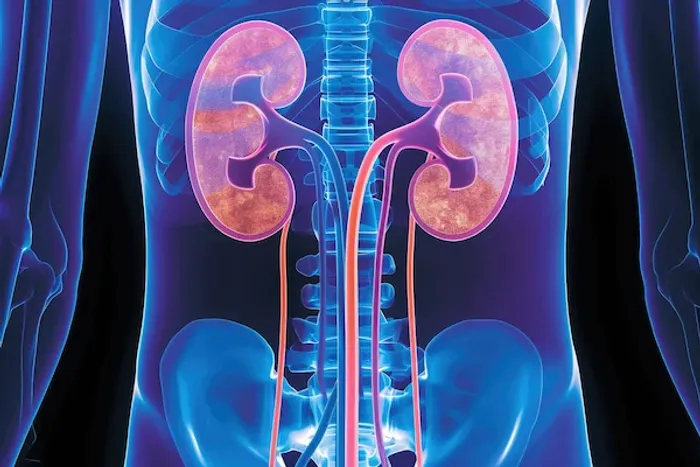
Introduction
Nestled deep in your abdomen, these two bean-shaped organs perform a silent, relentless symphony of tasks that are nothing short of miraculous. Your kidneys are vital not just for survival, but for a high-quality life. Every day, they process nearly 200 quarts of blood to sift out about 2 quarts of waste and extra water, which becomes urine. They are master regulators, crucial for maintaining stable blood pressure, ensuring strong bones, and even signalling your body to produce red blood cells. Despite their importance, we often take our kidneys for granted until something goes wrong. Kidney disease is a "silent" condition, often progressing with no noticeable symptoms until significant damage has occurred. This guide will delve into why your kidneys are vital, how to spot early signs of trouble, and the proactive steps you can take to protect these life-sustaining organs for years to come.
More Than Just Filters: What Are Your Kidneys and What Do They Do?
Many people think of kidneys simply as the body's filtration system. While that's a critical function, it's just the beginning. Think of your kidneys as the most sophisticated chemical processing plant imaginable, working 24/7 to keep your internal environment perfectly balanced.
Consult a Urologist for Personalised Advice
The Master Chemists of Your Body
Each kidney contains about a million tiny filtering units called nephrons. Each nephron is a complex structure that acts as an intelligent sieve, not only removing toxins like urea and creatinine but also carefully reabsorbing essential substances like glucose and amino acids back into the bloodstream. This precise control is what makes renal function so critical to overall health.
Key Function 1: Waste Removal and Blood Filtration
This is their most famous job. As blood passes through the kidneys, the nephrons filter out waste products from normal metabolism and from the food you eat. If this process stops, toxins build up rapidly in the bloodstream, leading to a condition called uremia, which is life-threatening. This is why the kidneys are vital for detoxification.
Key Function 2: Fluid and Electrolyte Balance
Your kidneys are constantly fine-tuning the water and mineral (electrolytes like sodium, potassium, and phosphate) levels in your body. Whether you drink a gallon of water or become slightly dehydrated, your kidneys adjust the concentration of your urine to maintain perfect balance. This electrolyte balance is essential for nerve function, muscle contraction, and maintaining a stable heart rhythm.
Key Function 3: Hormone Production for Blood Pressure and Red Blood Cells
This is where their role becomes truly systemic. Your kidneys produce:
Renin: An enzyme that helps regulate blood pressure.
Erythropoietin (EPO): A hormone that stimulates your bone marrow to produce red blood cells. Without EPO, anaemia develops.
Calcitriol: The active form of Vitamin D, which is essential for calcium absorption and bone health.
Silent But Deadly: Recognising the Signs of Kidney Trouble
Kidney disease is often called a "silent killer" because it can progress for years without any obvious symptoms. The organs have a remarkable reserve capacity, and signs typically only appear when kidney function has declined significantly, sometimes by as much as 70-80%. This makes awareness of subtle changes crucial.
Early Warning Signs You Might Miss
Early signs can be vague and easily attributed to other issues like stress or fatigue. Be mindful of:
Changes in Urination: This is often the first clue. Look for foamy urine (indicating protein), needing to go more often (especially at night), or seeing blood in the urine (a serious sign that needs immediate attention).
Persistent Fatigue and Trouble Concentrating: A buildup of toxins and anaemia caused by falling EPO levels can sap your energy and make it hard to think clearly.
Swelling (Oedema): When the kidneys can't remove excess fluid and sodium, it can cause puffiness around the eyes and swelling in your ankles, feet, or hands.
When to See a Doctor: Symptoms That Demand Attention
If you experience any of the following, it's important to consult a healthcare professional promptly. If symptoms like persistent swelling, unexplained nausea, or profound fatigue emerge, consulting a doctor online with Apollo24|7 can be a good first step for evaluation. More severe symptoms include:
Persistent nausea, vomiting, or loss of appetite.
Dry, itchy skin.
Shortness of breath, if fluid builds up in the lungs.
A metallic taste in the mouth or ammonia breath.
Are You at Risk? Common Causes of Kidney Disease
Understanding what threatens your kidneys is the first step in protecting them. The two leading causes of chronic kidney disease (CKD) are diabetes and high blood pressure, which together account for about two-thirds of all cases.
Lifestyle Factors: The Choices Within Your Control
Certain habits can put undue stress on your kidneys over time. These include:
A High-Sodium Diet: Excess salt raises blood pressure, directly damaging the delicate blood vessels in the kidneys.
Overuse of Painkillers: Regular, long-term use of nonsteroidal anti-inflammatory drugs (NSAIDs) like ibuprofen can cause kidney damage.
Smoking: It slows blood flow to the kidneys and can worsen existing kidney disease.
Dehydration: Consistently low fluid intake can increase the risk of kidney stones and potentially contribute to long-term damage.
Underlying Health Conditions That Threaten Kidney Health
Some risk factors require active management with your doctor:
Diabetes: High blood sugar damages the nephrons' filtering system.
High Blood Pressure: This can damage the blood vessels in the kidneys, impairing their function.
Heart Disease: There's a strong link between heart and kidney health.
Family History: A family history of kidney failure increases your risk.
Obesity: Being overweight increases the risk of diabetes and hypertension, which in turn affects the kidneys.
Protecting Your Lifeline: How to Keep Your Kidneys Healthy
The good news is that for most people, keeping their kidneys healthy is achievable through conscious lifestyle choices. Prevention is always better than a cure, especially with an organ as vital as the kidneys.
Hydration: The Elixir of Kidney Health
Staying well-hydrated helps your kidneys clear sodium, urea, and toxins from the body. While the "8 glasses a day" rule is a good guideline, listen to your body and drink enough so that your urine is light yellow or clear.
A Kidney-Friendly Diet: What to Eat and What to Avoid
Focus on a balanced diet rich in fresh fruits, vegetables, and whole grains. Limit processed foods, which are often high in sodium and phosphorus additives. If you already have kidney issues, working with a dietitian to manage protein, potassium, and phosphorus intake is key. This is a core part of a kidney-friendly diet.
The Power of Movement and a Healthy Weight
Regular exercise helps control blood pressure and blood sugar levels, two of the biggest threats to kidney health. It also helps maintain a healthy weight, reducing the strain on your entire system.
Avoiding Nephrotoxins: Medications and Substances to Use Wisely
Use over-the-counter painkillers sparingly and only as directed. If you need them regularly, talk to your doctor about safer alternatives. Avoid smoking and limit alcohol consumption.
Don't Wait for Symptoms: The Importance of Proactive Kidney Screening
Since kidney disease is often silent, waiting for symptoms is not a strategy. If you have risk factors like diabetes, high blood pressure, or a family history, regular screening is essential. This typically involves two simple tests:
1. A Blood Test: To measure your creatinine level and calculate your Glomerular Filtration Rate (GFR), which is the best indicator of how well your kidneys are working.
2. A Urine Test: To check for the presence of albumin, a type of protein that shouldn't be there. This is an early sign of kidney damage.
Apollo24|7 offers convenient home collection for tests like these, making proactive health monitoring easier than ever.
Conclusion
Understanding that your kidneys are vital is the foundation of long-term health. These incredible organs work tirelessly behind the scenes, but they are not invincible. They rely on the choices we make every day. By embracing a healthy lifestyle, being aware of the risks, and opting for proactive screening, you empower yourself to protect your kidney function. This isn't just about avoiding disease; it's about nurturing the very filters that keep your body clean, balanced, and full of life. Your kidneys have been working for you since day one; now is the time to return the favour. If you have any concerns about your kidney health based on your risk factors, booking a consultation with a specialist through Apollo24|7 is a proactive step towards lasting wellness.
Consult a Urologist for Personalised Advice
Consult a Urologist for Personalised Advice

Dr Anupam Sharma
Urologist
18 Years • MBBS, MS(Gen Surgery), DNB (Urology)
Delhi
Apollo Hospitals Indraprastha, Delhi
(25+ Patients)

Dr. Pavan Kumar S K
Urologist
11 Years • MBBS, MS , Mch( Urology) DNB (Urology)
Bengaluru
Apollo Clinic, JP nagar, Bengaluru

Dr. Ramesh H
Urologist
16 Years • MBBS, MS , Mch( Urology)
Bengaluru
Apollo Clinic, JP nagar, Bengaluru

Dr Tharaka Mourya Nutulapati
Urologist
7 Years • MBBS, MS (General Surgery), Mch ( Urology)
Visakhapatnam
Apollo 24|7 Clinic - Andhra Pradesh, Visakhapatnam

Dr. Sudhakar G V
Urologist
25 Years • MBBS, MS(Gen.Surgery), DNB Urology
Bengaluru
Apollo Clinic, JP nagar, Bengaluru
More articles from Kidney Disease
Frequently Asked Questions
1. What are the first signs of kidney problems?
The earliest signs are often subtle and include changes in urination (frequency, foaminess), persistent fatigue, and swelling in the ankles or around the eyes. However, significant damage can occur without any symptoms, which is why screening is important.
2. Can damaged kidneys heal?
Kidneys have a limited ability to repair themselves. The focus is on preventing further damage. In cases of chronic kidney disease, the damage is usually permanent, but its progression can be slowed or halted with proper treatment and lifestyle changes.
3. How much water should I drink to keep my kidneys healthy?
common recommendation is 8-10 glasses per day, but this can vary based on your activity level, climate, and health. A good indicator is the colour of your urine, aiming for light yellow or clear.
4. Are kidney stones a sign of kidney disease?
While painful, kidney stones don't typically cause permanent kidney damage if treated promptly. However, having stones once increases your risk of getting them again, and recurrent stones can be a risk factor for developing chronic kidney disease over time.
5. What is a normal GFR level?
Glomerular Filtration Rate (GFR) of 90 or above is generally considered normal. A GFR below 60 for three months or more may indicate chronic kidney disease. Your doctor is the best person to interpret your results in the context of your overall health.
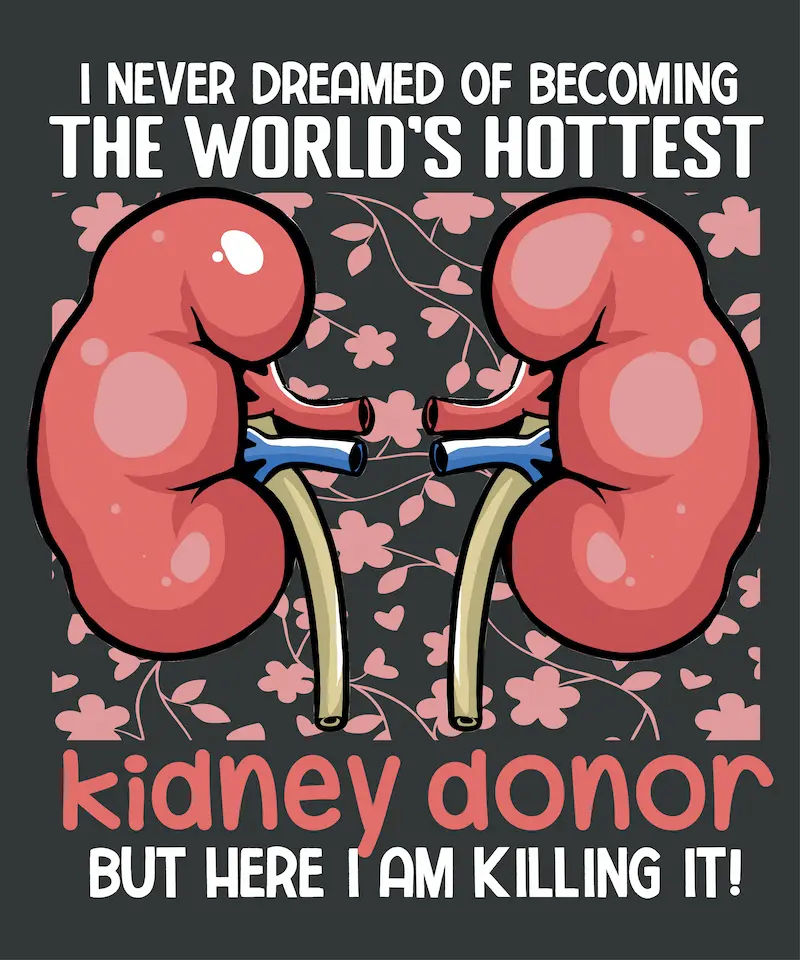
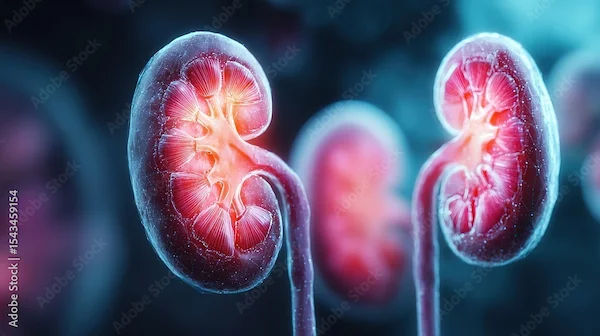
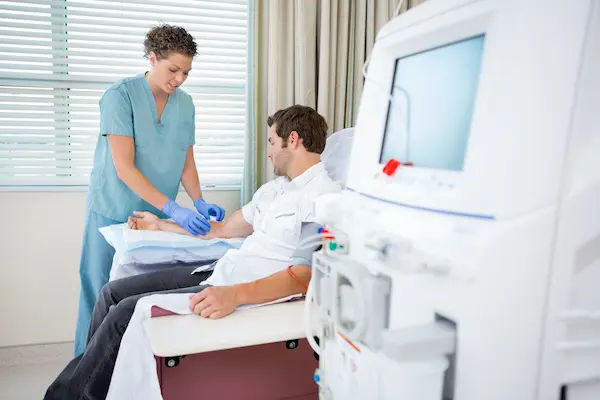
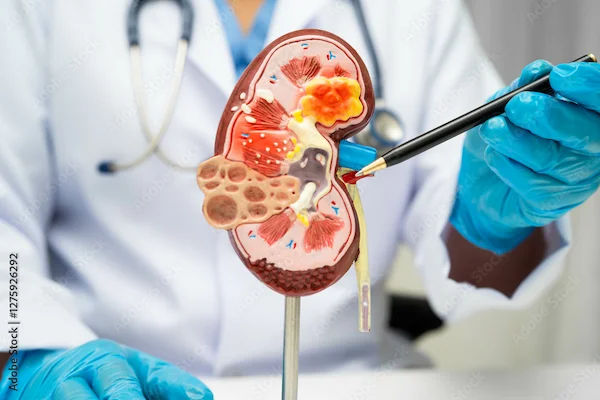
.webp)